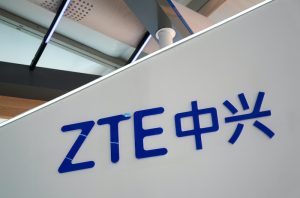(ATF) In a move believed to be the first step towards keeping Chinese equipment makers out of India’s future telecom rollouts, India amended telecom licensing norms on Wednesday making it mandatory for operators to procure gear only from “trusted” vendors.
In the amendment to the Unified Access Services License Agreement (UASL) for procurement of Telecommunication equipment that will apply from June 15, India also said telecom operators will need permission from the National Cyber Security Coordinator (NCSC) for upgrading of existing networks, and for utilising the telecom equipment not designated as trusted products.
“The government through the designated authority will have the right to impose conditions for procurement of telecommunication equipment on grounds of defence of India, or matters directly or indirectly related thereto for national security,” the regulatory authority, Department of Telecom (DoT) said in an announcement.
The authority, Dot added, will be the National Cyber Security Coordinator (NCSC), which has been given the right to seek any information from the telecom service providers and notify the categories of equipment for which the security requirements related to trusted sources are applicable.
Under the new rules, equipment companies will have to enrol with the NCSC, which will establish whether the supplier is a trusted source or not and list names that have not made the cut.
“However, these directions will not affect ongoing annual maintenance contracts (AMC) or updates to the existing equipment already inducted in the network as on date of effect,” DoT said.
It added that this amendment will be a part of the UASL while all others licensing terms and conditions will remain unchanged.
CHINA FACTOR?
The NSCS was set up in December last year to list ‘trusted and non-trusted’ telecom gear vendors (like Ericsson, Nokia, Samsung, Huawei and ZTE), but it has not published such a list yet.
However, according to experts, the target of the amendment is quite clear – the Chinese telecom gear suppliers – since the amendments come as one of the backlashes following geopolitical tensions between the India and China over the border clashes last year.
While that led India to monitor all major contracts with China since then, recent incidents allegedly involving Chinese hackers may have also hastened the process with the government inclined towards a new national strategy to strengthen security, says sources.
DoT officials too say telecom gear plays a vital role in connectivity and communication.
“Telecom is considered as critical infrastructure, which has to be free from any sort of security risks; that’s the main focus of the DoT. The objective of India’s various telecom security-related policies is to ensure that at any given point in time, no country, technology, equipment, or company can exploit the network to harm the communication infrastructure, ” a DoT official told Asia Times Financial, requesting anonymity due to the sensitivity of the matter.
“It is the decision of the government then to ensure that whatever equipment goes into the telecom infrastructure come from trusted sources. There are mechanisms and global standards to ascertain how ‘trusted sources’ are defined and the NCSC is working on it,” the official added.
STATE OF LIMBO
The telecom operators though are worried that the new amendments could stall their network rollout plans, at least for a while.
“The term ‘trusted source’ has not been defined yet so the operators do not know whether that will include Chinese equipment or not. Network roll-outs therefore would have to be stalled for a while until the list is released ,” a source from a telecom operators’ association told ATF, also requesting anonymity.
Nevertheless, the DoT has been careful too.
“The government has been careful to not ask for an immediate ban of equipment which may or may not be in the proposed white list. It is clear that the Government is taking a more considered approach and it would seem that the impact would be seen more in future procurements and in particular in 5G deployments,” Mahesh Uppal, the founder of Com First, a telecom consultancy firm told ATF.
“It seems that the Government is keener to control the future deployments and I assume that the government has taken these decisions in the light of their security concerns as well as the cost implication of the telcos,” he added.
Meanwhile, Chinese gear makers in India are unfazed.
“ZTE does not comment on speculation and the new notice has not identified any company or country either. Business in India is still like usual for the company,” a ZTE source said.
Also on ATF:
India woos telecom gear makers with new incentives
India gets its first taste of 5G but full rollout some time away
























